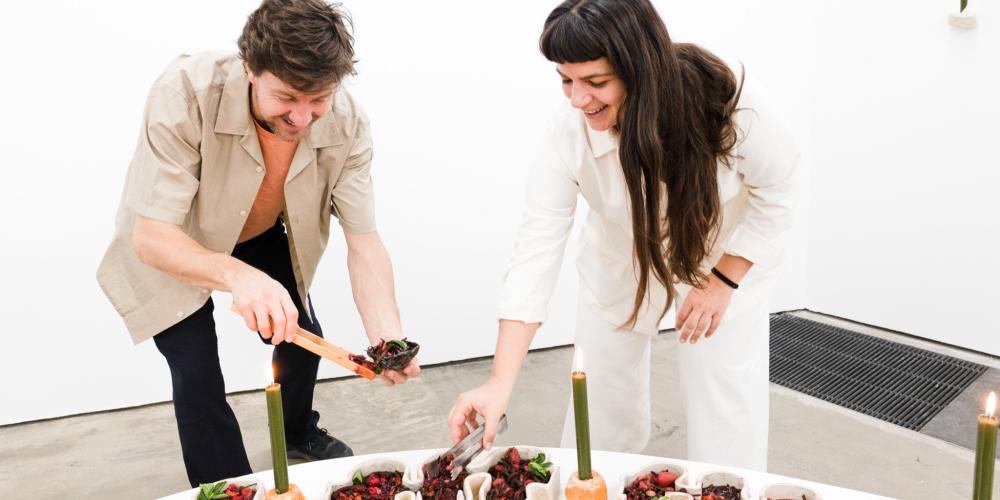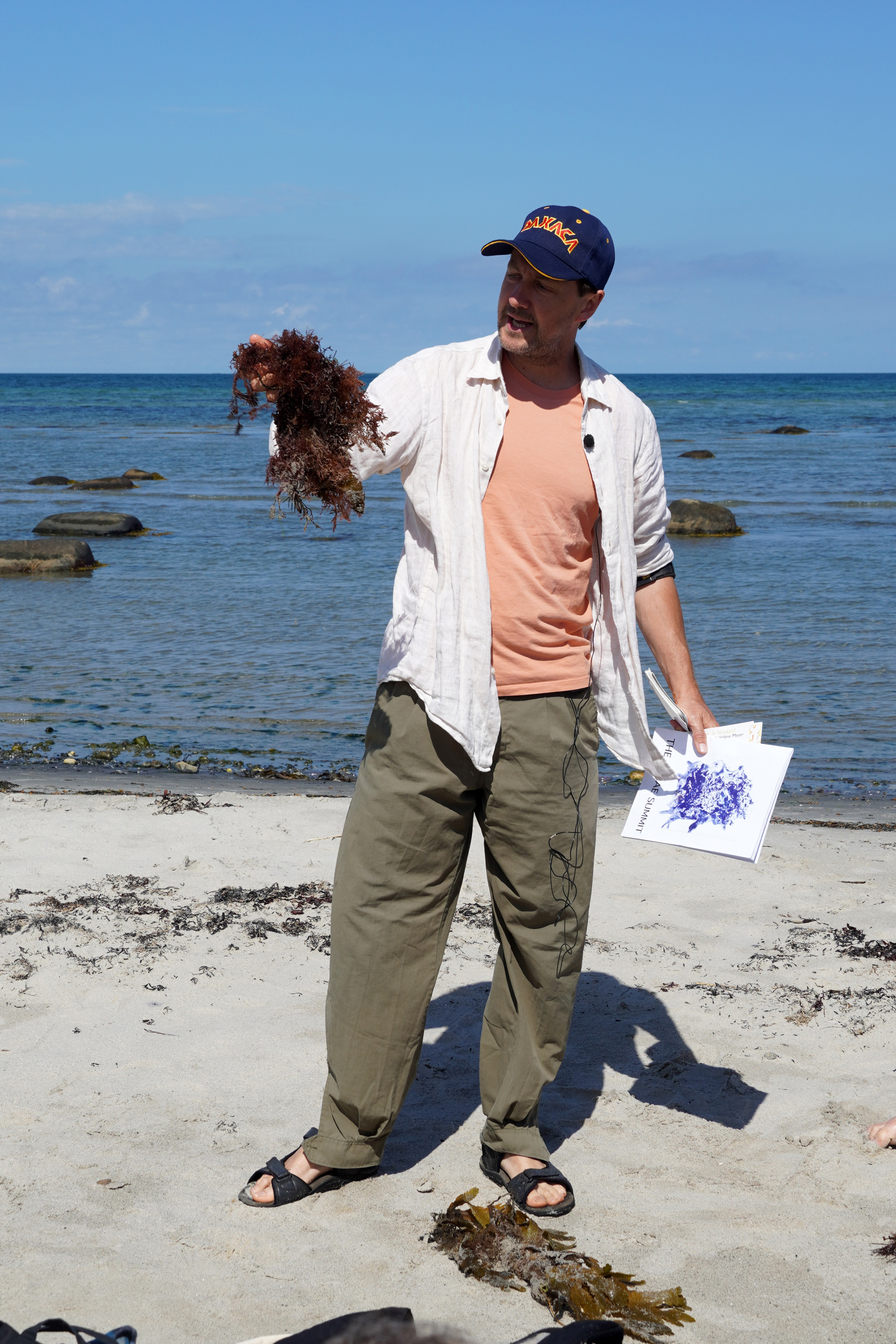The Way of the Water
The Platform for Algae Diplomacy (Hélène Meyer & Filip Van Dingenen) is part of an art parcours in collaboration with the rivers Traisen and Mühlbach, part of TangenteSt.Pölten Festival for Contemporary Culture
30/04 – 06/10/2024
The existence of all living organisms depends on water. When we drink a glass of water, this water flows through us back into the world. With every sip, we enter into a cross-species exchange with various living beings, but also with meteorological, cultural, ecological and geophysical technologies. Our bodies are largely made up of water; it is both a source of life and a deadly element, bringing both salvation and danger. It can also mark a border or be a sign of pollution, a carrier of time, memory and change, of colonial exploitation or indigenous struggles. Water is transnational, transcorporeal and political. Most human settlements were built along rivers. Rivers are the backbone, lungs, legs and head of urban development. They cut through invisible and visible walls and fences and serve as both a means of transport and a barrier. This is also the case in St. Pölten, which was once founded on the Traisen in Roman times.
The starting point for the exhibition “The Way of the Water” was a series of fundamental questions for the artists: What does it mean to you to enter into a collaboration with the river? How can art be created in interaction with the river, its seasonal changes, the sun, the drought, the rainfall, its artificial forms and changing shapes? How can we convey our humanity as part of a “hypersea” of myriad bodies of water? Can we design interventions or conceptual gestures that not only talk about environmental personhood, but subtly connect with it? Talking to the river, sitting in the river, floating with the river?
The route starts at the Mühlbach at Solektiv, the selforganised initiative for art, culture and nature, and then follows the course of the Traisen and the Mühlbach from south to north. On our way along the riverside promenade of the government quarter, we pass under numerous bridges where artistic interventions deal with themes such as ecological humanness or the ecological footprint of so-called green energy. We come across the untold stories of the flooded labour camp at the Viehofner Lakes. On the way back to the Mühlbach we pass the water towers of the former Glanzstoff factory and the fountain of the Mevlana mosque. We follow the leafy paths along the Mühlbach stream and end up at a former snack stand that was brought to St. Pölten from Vienna in the late 1970s.
The artists coming to St. Pölten from near and far will have a decisive influence on the themes of the Tangente – ecology, memory and democracy. The projects consist partly of new commissions, partly of existing works adapted to the new contexts: from drawings made by the water, to instruments floating in the river, to audio pieces about what is under the surface of the water. The invited artists share an interest in interventions in the environment, in the power of simple gestures, but also in broader themes such as the exploitation and privatisation of planetary resources, the mythological or spiritual interpretations of the fluid, aquatic forms of memory or the changes in weather and climate. The art parcours is intended for both local and international visitors, who can explore it during a tour by bicycle, on foot and perhaps even by kayak, but it also offers interesting discoveries for those who happen to be passing by.
An important source of inspiration for the exhibition are the writings of feminist scholar Astrida Neimanis on “hydrofeminism” and the idea that we humans belong to the planetary “hydrocommons” via the leaky, permeable and transcorporeal ontology of water. Together with the river, we will use art as a language that makes tangible what it really means to drink a glass of water, to think with water and to be water yourself, both in St. Pölten and elsewhere in the world.
Curated by Joanna Warsza and associate curator Lorena Moreno Vera
Artists: Amanda Piña, Clara Laila Abid Alsstar, Cecylia Malik, Christina Gruber, Edgar Calel, Elisabeth von Samsonow, Eva Grubinger & Werner Feiersinger, Filip van Dingenen and Hélène Meyer, Javier Téllez, Jimena Croceri, Katarina Pirak Sikku, Klara Hobza, Lisa Tan, Lisa Truttmann, neonpink Collective, Paola Torres Núñez del Prado, Rainer Prohaska, Regina Hügli, Rita Fischer, Roberta Lazo Valenzuela, Sissel Tolaas, Slavs and Tatars, Sophie Utikal, Ursula K. Le Guin
Practical
TangenteSt.Pölten Festival for Contemporary Culture
Festival Centre: Linzer Straße 16 & 18
3100 St. Pölten
Austria
Read more at TangenteSt.Pölten Festival for Contemporary Culture

